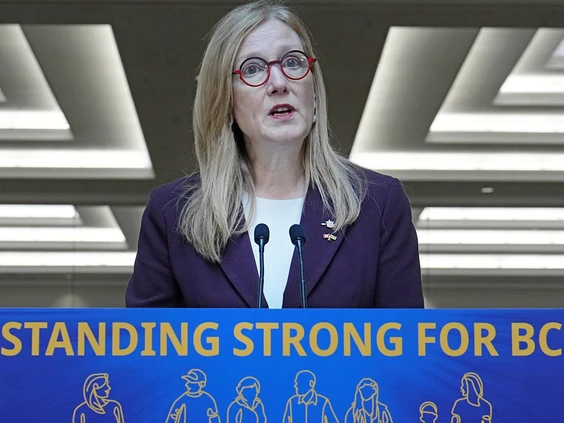Thousands of public service workers in British Columbia are preparing for a strike vote after contract talks with the government broke down. The union representing over 34,000 employees says months of negotiations failed to produce a fair agreement, especially on wages, remote work rules, and contract modernization.
Paul Finch, president of the B.C. General Employees’ Union (BCGEU), said the current offer from the province does not meet the needs of workers. He highlighted that many members are struggling with rising living costs, while their wages have not kept up with inflation.
Finch warned that without better pay, the province could lose skilled workers in critical roles. He pointed to wildland firefighters, calling their current wage of $28 per hour too low for the dangerous work they do to protect communities.
He also expressed concern about management expansion. Over the past 15 years, Finch said there has been a 52% increase in senior management positions, while frontline workers have been expected to do more with fewer resources.
The union’s recent proposal suggested a two-year contract with increased wages for lower-paid workers, special pay adjustments for certain jobs, and bonuses rolled into base salaries. However, the government’s latest offer was a 1.5% raise in the first year and a 2% increase in the second. The union called that proposal unacceptable and said it ignored major concerns.
One of those concerns is the right to work from home. The union is pushing for basic telework protections to be part of the agreement. It also wants to remove what it describes as an outdated public service job evaluation plan that no longer reflects current duties or responsibilities.
In response, B.C. Finance Minister Brenda Bailey issued a statement saying the government respects its dedicated public service employees. She said the province remains hopeful that both sides will return to the bargaining table soon. Bailey added that discussions are best kept at the table to help reach a fair settlement for all parties.
Despite this, the union is moving ahead with preparations for a strike vote. The decision reflects the frustration among workers who feel the province is not listening to their concerns.
Finch emphasized that without meaningful changes, the government risks losing experienced employees across many departments. He said public service workers are essential to keeping communities safe, especially in times of emergency, and deserve to be treated with fairness and respect.
The BCGEU represents a wide range of workers in areas such as social services, corrections, natural resource management, and emergency response. Many of these roles are considered critical to public safety and community wellbeing.
As the strike vote approaches, the outcome of this labor dispute could have wide-reaching effects. If an agreement is not reached soon, it could lead to disruptions in key services across the province.
Both the union and the government say they are open to continued talks, but for now, the gap between their positions remains wide.

